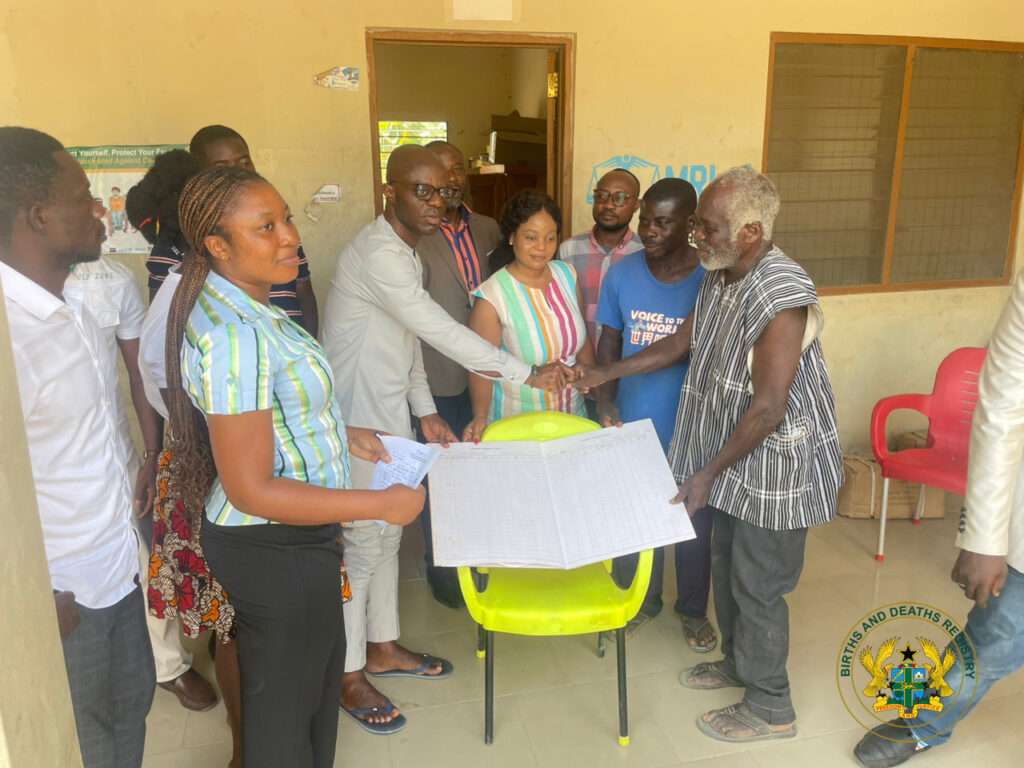In a bid to streamline registration processes and make them more accessible to the populace, Madam Henrietta Lamptey, the Acting Registrar of Births & Deaths Registry, has highlighted the Registry’s enhanced systems that allow for the registration of newborn babies at hospitals and Community Health Planning Services (CHPS) compounds across the country.
She indicated the efforts made to improve the accessibility and efficiency of birth and death registration services in Ghana.
This initiative aims to bring these services closer to the people, reducing the need for travel to Accra for such registrations. The Registry has implemented changes to its service delivery, including the handling of registration requests at district offices instead of the national office.
This means that birth registrations, which previously required travel to Greater Accra, can now be completed at hospitals or within the community at CHPS compounds. This move is part of a broader effort to streamline the registration process and make it more accessible to the public.
“We have improved our services to the public. There are key aspects of registration such as alterations and corrections that are done only at the national office. Other requests are now done at the district offices, especially registration at birth, which is done at hospitals. So, there is no need to travel all the way to Greater Accra to have it done. It is now done at the hospitals or even within the community, CHPS compound and all that; we are present to register birth immediately it happens with the Ghana Health Service.”
Madam Henrietta Lamptey, the Acting Registrar of Births & Deaths Registry
Additionally, the Registry has published a statistical report on its birth and death registry services, which has helped in understanding the volume of registrations it can handle annually.
The report indicated a significant improvement in the Registry’s ability to register births, with a 90% success rate compared to a 70% rate two years ago. This progress is attributed to the Registry’s efforts to provide better services and support from organizations like UNICEF.
The initiative to register births at CHPS compounds and other locations is part of a two-day workshop for births and deaths registrars in Accra, aimed at training district officers on the new Instructions Manual developed by the Registry.
This manual, supported by UNICEF, outlines the standard operating procedures for the Registry’s services, including registration of births and deaths, alterations, searches, information sharing, and reporting to the Government Statistician.
Some Challenges Facing the Registry

The Births and Deaths Registry in Ghana faces several specific challenges that hinder its effectiveness and equity in birth and death registration services.
Madam Lamptey said, “The Births and Deaths Registry faces challenges due to unpredictable and inadequate financing for birth registration services. This financial instability affects the registry’s ability to deliver equitable, accessible, and timely services to children.”
There are significant disparities in birth registration coverage rates across different regions, urban vs. rural areas, and socio-economic groups. For example, children from poor families and those in rural areas are the least likely to have a birth certificate.
This disparity is further exacerbated by the fact that children with mothers who have no education are less likely to be registered than those whose mothers have secondary or higher education.
Reporting deaths remains a low priority for most people in Ghana, leading to low coverage rates for death registrations. This issue is compounded by the lack of motivation to report the death of relatives.
Despite these challenges, there is hope for improvement in the birth and death registration services in Ghana. The government has set new indicators to improve these services, aiming to ensure that a significant proportion of children in rural communities, and those from the poorest wealth quintile are registered.
The Registry’s efforts to improve its services and make them more accessible to the public are commended by UNICEF, which emphasizes the importance of data for planning and addressing social inequality. The training provided during the workshop is intended to ensure that the benefits of these improvements are fully realized by the Registry’s officers and, ultimately, the Ghanaian public.
READ ALSO: Mahama Accuses President Akufo-Addo of Damaging Ghana’s Democracy



















